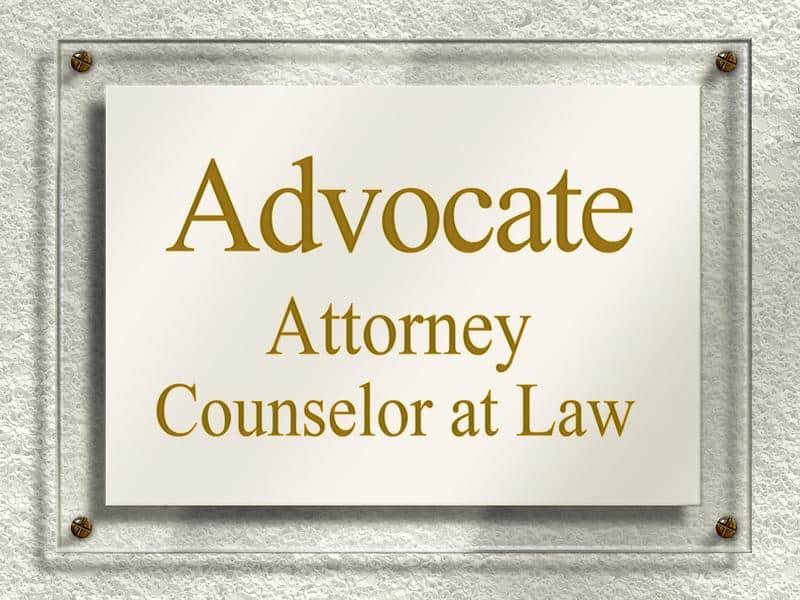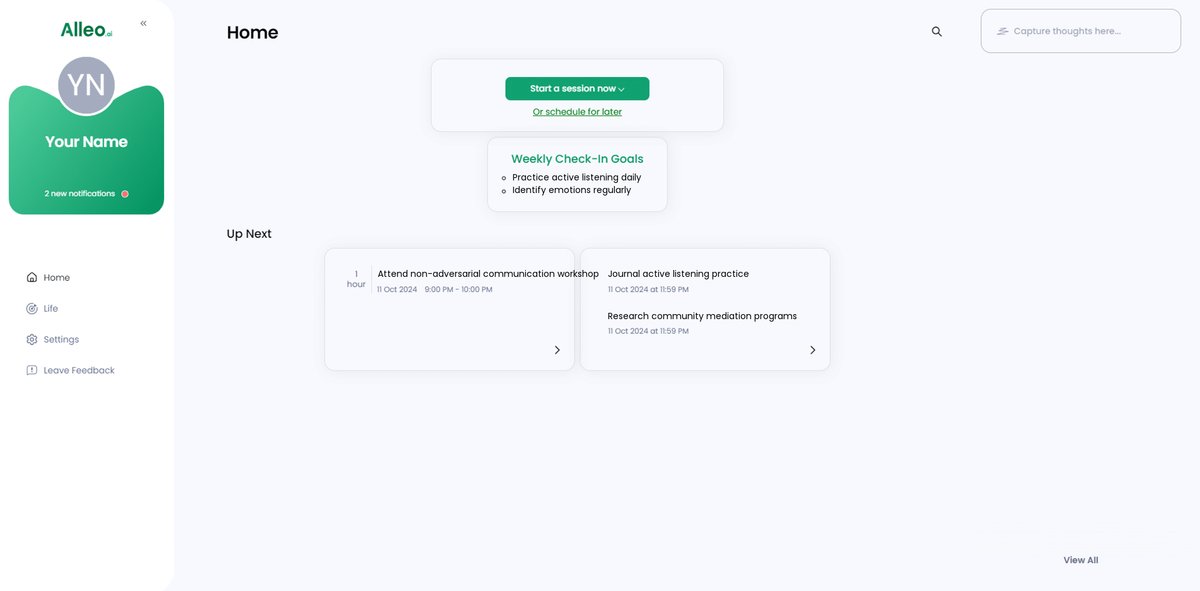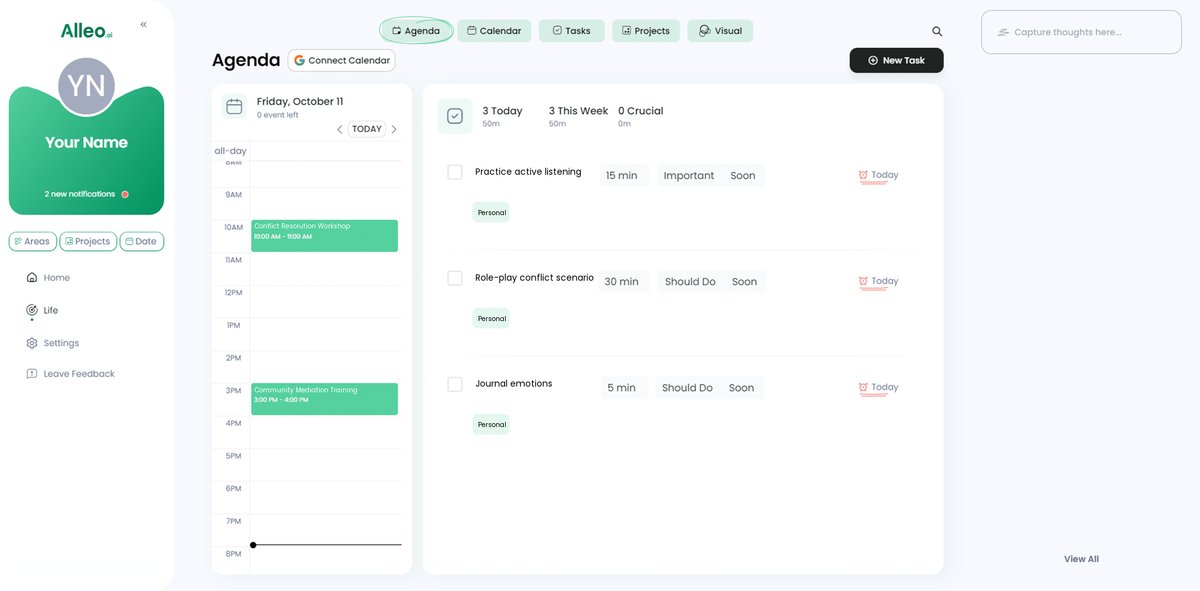5 Powerful Strategies for Lawyers to Master Conflict Resolution Beyond the Courtroom
Have you ever found yourself arguing intensely over a minor disagreement, even outside the courtroom? This challenge of lawyers’ conflict resolution outside the courtroom is more common than you might think.
You’re not alone.
As a life coach, I’ve helped many professionals navigate these challenges. In my experience working with clients, I often see lawyers struggle to resolve conflicts calmly due to their litigation training, highlighting the need for alternative dispute resolution skills.
In this post, you’ll discover how to improve your conflict resolution skills outside the courtroom. We’ll explore strategies to help you manage stress and build better relationships, focusing on effective communication in legal disputes and emotional intelligence in the legal profession.
Let’s dive in to explore negotiation techniques for attorneys and mediation skills for lawyers that can enhance your professional development.
Understanding the Challenge: Why Litigation Training Can Be a Hindrance
Litigation training often creates a reflex to argue intensely, even over minor disagreements. This reflex can easily spill over into personal life, causing unnecessary stress and strained relationships. For lawyers seeking conflict resolution outside the courtroom, this can be particularly challenging.
Many clients initially struggle with this reflex, finding it difficult to dial down their adversarial approach outside the courtroom. One lawyer shared how their argumentative style led to conflicts at home, making family dinners tense. This highlights the importance of developing effective communication in legal disputes and enhancing emotional intelligence in the legal profession.
This reflex isn’t just frustrating—it’s exhausting. It can lead to heightened stress levels and a perpetual state of defensiveness, emphasizing the need for conflict de-escalation tactics.
This constant tension can negatively impact your overall well-being and personal relationships. It underscores the importance of professional development for attorneys in areas beyond traditional litigation skills.
So, how can you break this cycle and improve lawyers’ conflict resolution outside the courtroom?

Roadmap to Mastering Conflict Resolution Outside the Courtroom
Overcoming this challenge requires a few key steps. Here are the main areas to focus on for lawyers seeking conflict resolution outside the courtroom:
- Practice Active Listening in Daily Conversations: Set daily goals to practice and reflect on active listening skills, enhancing effective communication in legal disputes.
- Learn and Apply Emotional Intelligence Techniques: Study emotional intelligence in the legal profession and integrate its principles into your interactions.
- Engage in Role-Play Scenarios of Non-Legal Conflicts: Use role-playing to practice non-adversarial communication and alternative dispute resolution techniques.
- Attend Workshops on Non-Adversarial Communication: Participate in workshops to enhance your negotiation techniques for attorneys and mediation skills for lawyers.
- Volunteer for Community Mediation Programs: Gain experience by volunteering in mediation programs, improving client relationship management for lawyers and legal problem-solving strategies.
Let’s dive into these collaborative law practices!
1: Practice active listening in daily conversations
Active listening is crucial for improving conflict resolution skills and fostering better relationships, especially for lawyers practicing conflict resolution outside the courtroom.
Actionable Steps:
- Set a daily goal to practice active listening with family, friends, and colleagues for at least 15 minutes, enhancing negotiation techniques for attorneys.
- Keep a journal to reflect on these conversations, noting improvements and areas for further development in mediation skills for lawyers.
- Use feedback from others to adjust and refine active listening techniques, improving effective communication in legal disputes.
Explanation: Practicing active listening helps you understand others’ perspectives and reduces the urge to argue, a key aspect of alternative dispute resolution.
By consistently reflecting and adjusting your approach, you can enhance your communication skills and client relationship management for lawyers.
According to CasePacer, understanding the opposing party’s needs is key in negotiations, which is also true in personal interactions and lawyers’ conflict resolution outside the courtroom.
Key benefits of active listening:
- Builds trust and rapport, essential for collaborative law practices
- Reduces misunderstandings, aiding in conflict de-escalation tactics
- Encourages open communication, crucial for legal problem-solving strategies
This approach will lay a strong foundation for better conflict resolution and professional development for attorneys, emphasizing emotional intelligence in the legal profession.

2: Learn and apply emotional intelligence techniques
Enhancing your emotional intelligence is essential for managing stress and improving conflict resolution skills for lawyers outside the courtroom.
Actionable Steps:
- Read a book or take an online course on emotional intelligence in the legal profession, such as “Emotional Intelligence 2.0” by Travis Bradberry and Jean Greaves, to build foundational knowledge for effective communication in legal disputes.
- Practice identifying and labeling your emotions in various situations throughout the day, and note your observations to improve client relationship management for lawyers.
- Implement techniques such as empathy and self-regulation in both personal and professional interactions, and track your progress in a journal to enhance negotiation techniques for attorneys.
Explanation: These steps are crucial for understanding and controlling your emotions, which improves your interactions with others and supports alternative dispute resolution.
According to Barbri, mastering ADR techniques can lead to more favorable outcomes, highlighting the importance of emotional intelligence in legal practice and lawyers’ conflict resolution outside the courtroom.
Implementing these techniques can transform your approach to conflict resolution, making it more collaborative and less adversarial, aligning with collaborative law practices and legal problem-solving strategies.

3: Engage in role-play scenarios of non-legal conflicts
Engaging in role-play scenarios of non-legal conflicts can help lawyers practice conflict resolution outside the courtroom and develop non-adversarial communication skills in a controlled environment.
Actionable Steps:
- Partner with a colleague or friend to role-play common conflicts, focusing on non-adversarial communication and negotiation techniques for attorneys. Record these sessions for review.
- Review the recordings to identify areas for improvement in mediation skills for lawyers and celebrate successes. Use this feedback to refine your approach to alternative dispute resolution.
- Increase the complexity of scenarios gradually to build confidence and adaptability in effective communication in legal disputes. This will prepare you for real-life situations requiring lawyers’ conflict resolution outside the courtroom.
Explanation: These steps are crucial for developing a more collaborative approach to conflict resolution and enhancing legal problem-solving strategies.
According to the Hugh L. Carey Center for Dispute Resolution, modern legal practice emphasizes achieving better outcomes rather than winning at all costs, aligning with collaborative law practices.
Practicing with role-play helps you internalize these skills, making you more effective in both personal and professional interactions, and improving client relationship management for lawyers.
This hands-on practice will enhance your ability to handle conflicts calmly and constructively, strengthening emotional intelligence in the legal profession and conflict de-escalation tactics.

4: Attend workshops on non-adversarial communication
Attending workshops on non-adversarial communication is essential for honing your conflict resolution skills outside the courtroom, a crucial aspect of lawyers’ conflict resolution outside the courtroom.
Actionable Steps:
- Research and register for local or online workshops focused on non-adversarial communication and conflict resolution. Ensure these workshops align with your schedule and professional goals, particularly those emphasizing alternative dispute resolution and negotiation techniques for attorneys.
- Participate actively in these workshops by engaging with instructors and peers. Take notes and practice the techniques taught during the sessions, focusing on mediation skills for lawyers and effective communication in legal disputes.
- Apply learned techniques in real-life situations and seek feedback from workshop facilitators to refine your approach to client relationship management for lawyers and legal problem-solving strategies.
Explanation: Attending workshops offers structured learning and practical insights into effective conflict resolution. Engaging with experts and peers can significantly enhance your skills in collaborative law practices and emotional intelligence in the legal profession.
According to the Seton Hall Law School, these courses teach fundamental skills for negotiation and mediation, critical for modern legal practice and lawyers’ conflict resolution outside the courtroom.
What to look for in a quality workshop:
- Experienced instructors with real-world expertise in conflict de-escalation tactics
- Interactive learning components focusing on professional development for attorneys
- Opportunities for practical application of alternative dispute resolution techniques
Taking part in these workshops will equip you with practical tools to handle conflicts more constructively, enhancing your ability in lawyers’ conflict resolution outside the courtroom.

5: Volunteer for community mediation programs
Volunteering for community mediation programs offers hands-on experience, helping lawyers improve conflict resolution outside the courtroom and enhance their alternative dispute resolution skills.
Actionable Steps:
- Identify local community mediation programs and inquire about volunteer opportunities. Commit to volunteering a specific number of hours each month to develop mediation skills for lawyers.
- Participate actively in mediation sessions by observing, assisting, or co-mediating. Apply non-adversarial techniques and negotiation techniques for attorneys learned in other training.
- Reflect on each session in a journal to note areas of success and opportunities for improvement. Seek feedback from experienced mediators to enhance your effective communication in legal disputes.
Explanation: Volunteering provides practical experience in real-world conflict resolution, reinforcing non-adversarial techniques and improving client relationship management for lawyers.
According to the Hugh L. Carey Center for Dispute Resolution, modern legal practice emphasizes collaboration and achieving better outcomes. Engaging in community mediation helps build these critical skills, including legal problem-solving strategies.
Benefits of community mediation volunteering:
- Real-world experience in diverse conflicts, enhancing lawyers’ conflict resolution outside the courtroom
- Networking opportunities with professionals in alternative dispute resolution
- Contribution to community well-being through collaborative law practices
This hands-on involvement will significantly enhance your ability to handle conflicts constructively, improving your emotional intelligence in the legal profession.

Transform Your Conflict Resolution Skills with Alleo
We’ve explored the challenges of improving lawyers’ conflict resolution outside the courtroom. Solving them can benefit your personal and professional life, enhancing your alternative dispute resolution abilities.
But did you know you can work directly with Alleo to make this journey easier and faster, improving your negotiation techniques for attorneys?
Setting up an account with Alleo is simple. Create a personalized plan tailored to your needs, focusing on mediation skills for lawyers and effective communication in legal disputes.
Alleo’s AI coach provides affordable, tailored coaching support. You’ll receive full coaching sessions like any human coach, enhancing your client relationship management for lawyers.
Plus, there’s a free 14-day trial, requiring no credit card.
Alleo’s coach will follow up on your progress. It handles changes and keeps you accountable via text and push notifications, supporting your legal problem-solving strategies and conflict de-escalation tactics.
Ready to get started for free? Let me show you how to improve your lawyers’ conflict resolution outside the courtroom!
Step 1: Log In or Create Your Alleo Account
To start your journey towards better conflict resolution, log in to your Alleo account or create a new one to access personalized AI coaching that will help you apply the strategies discussed in this article.

Step 2: Choose Your Goal – Improving Overall Well-being and Life Satisfaction
Select “Improving overall well-being and life satisfaction” as your goal to address the stress and relationship challenges stemming from intense argumentative habits, helping you develop a more balanced approach to conflicts both in and out of the courtroom.

Step 3: Select “Personal” as Your Focus Area
Choose “Personal” as your life area to improve conflict resolution skills outside the courtroom, helping you build better relationships and reduce stress in your daily interactions.

Step 4: Starting a coaching session
Begin your journey with Alleo by scheduling an intake session, where you’ll discuss your conflict resolution goals and create a personalized plan to improve your skills outside the courtroom.

Step 5: Viewing and managing goals after the session
After your coaching session on improving conflict resolution skills, check the Alleo app’s home page to view and manage the goals you discussed, helping you stay accountable and track your progress in developing non-adversarial communication techniques.

Step 6: Adding events to your calendar or app
Use Alleo’s calendar and task features to schedule and track your conflict resolution activities, such as active listening practice sessions, role-play scenarios, and community mediation volunteering, helping you stay accountable and measure your progress in improving your skills outside the courtroom.

Wrapping Up: Transforming Your Conflict Resolution Skills
We’ve covered a lot together, haven’t we?
Improving your conflict resolution skills outside the courtroom is vital for lawyers, reducing stress and building better relationships. Alternative dispute resolution techniques can greatly benefit attorneys in their practice.
Remember, by practicing active listening, enhancing your emotional intelligence in the legal profession, role-playing negotiation techniques for attorneys, attending workshops on mediation skills for lawyers, and volunteering, you can make significant progress in effective communication in legal disputes.
Start small, and celebrate your wins in developing your legal problem-solving strategies.
With Alleo, you can get personalized support to stay on track and reach your goals in collaborative law practices and client relationship management for lawyers.
Take the first step today towards mastering lawyers’ conflict resolution outside the courtroom. You deserve a more balanced, harmonious life in your legal career.
Try Alleo for free and see the difference it can make in your professional development as an attorney.